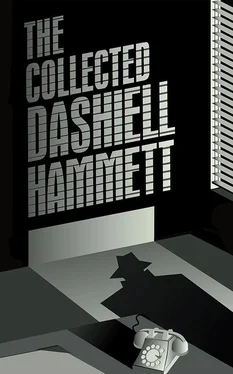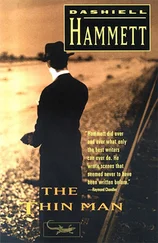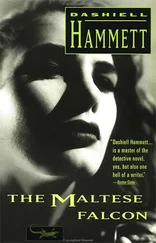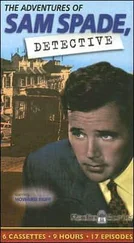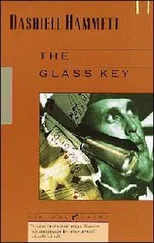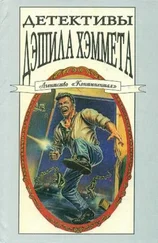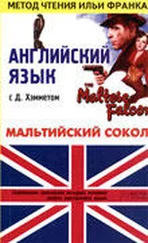After that, however, he was beyond recovery. He could not then by any effort have conquered his fear. He was beaten and he knew it. Henceforth, he had run without even decent shame in his cowardice, and he had begun to flee from other things than guns.
He had, for instance, let a jealous half-caste garimpeiro drive him out of Morro Velho, drive him away from his job with the British São João del Rey Mining Company and Tita. Tita’s red mouth had gone from smiling allure to derision, but neither the one nor the other was strong enough to keep Owen Sack from retreating before the flourish of a knife in the hand of a man he could have tied in knots, knife and all. Out of the Bakersfield oil fields he had been driven by the bare fists of an undersized rigger. And now from here....
The other times hadn’t, in a way, been so bad as this. He was younger then, and there was always some other place to attract him — one place was as good as another. But now it was different.
He was no longer young, and here in the Cabinet Mountains he had meant to stop for good. He had come to look upon his cabin as his home. He wanted but two things now: a living and tranquillity, and until now he had found them here. In the year 1923 it was still possible to wash out of the Kootenai enough dust to make wages — good wages. Not wealth, certainly, but he didn’t want wealth; he wanted a quiet home, and for six months he had had it here.
And then he had stumbled upon the Yusts’ cache. He had known, as all Dime knew, that the Kootenai River — winding down from British Columbia to spend most of its four hundred miles in Montana and Idaho before returning to the province of its birth to join the great Columbia — was the moving road along which came much liquor, to be relayed to Spokane, not far away. That was a matter of common knowledge, and Owen Sack of all men had no desire for more particular knowledge of the river traffic.
Why, then, had his luck sent him blundering upon the place where that liquor was concealed until ready for its overland journey? And at a time when the Yusts were there to witness his discovery? And then, as if that were not enough in itself, the Prohibition enforcement officers had swooped down on that hiding-place within a week.
Now the Yusts suspected him of having informed; it was but a matter of time before their stupid brains would be convinced of that fact; then they would strike — with a gun. A pellet of metal would drive through Owen Sack’s tissues as one had driven through Cardwell’s....
He got up from the chair and set about packing such of his belongings as he intended taking with him — to where? It didn’t matter. One place was like another — a little of peace and comfort, and then the threat of another gun, to send him elsewhere. Baltimore, New South Wales, north Queensland, Brazil, California, here — thirty years of it! He was old now and his legs were stiff for flight, but running had become an integral part of him.
He packed a little breathlessly, his fingers fumbling clumsily in their haste.
Dusk was thickening in the valley of the Kootenai when Owen Sack, bent beneath the blanketed pack across his shoulders, tramped over the bridge into Dime. He had remained in his cabin until the last minute, so that he might catch the stage which would carry him to the railroad just before it left, avoiding farewells or embarrassing meetings. He hurried now.
But, again, luck ran against him.
As he turned the corner of the New Dime Hotel toward the stage terminus — two doors beyond Henny Upshaw’s soft-drink parlor and poolroom — he spied Rip Yust coming down the street toward him. Yust’s face, he could see, was red and swollen, and Yust’s walk was a swagger. Yust was drunk.
Owen Sack halted in the middle of the sidewalk, and realized immediately that that was precisely the wrong thing to do. Safety lay — if safety lay anywhere now — in going on as if nothing out of the ordinary were happening.
He crossed the street to the opposite sidewalk, cursing himself for this open display of his desire to avoid the other, but nevertheless unable to keep his legs from hurrying him across the dusty roadway. Perhaps, he thought, Rip Yust’s whisky-clouded eyes would not see him hurrying toward the stage depot with a pack on his back. But even while the hope rose in him he knew it for a futile, childish one.
Rip Yust did see him, and came to the curb on his own side of the street, to bellow:
“Hey, you! Where you going?”
Owen Sack became motionless, a frightened statue. Fear froze his mind — fear and thoughts of Cardwell.
Yust grinned stupidly across the street, and repeated:
“Where you going?”
Owen Sack tried to answer, to say something — safety seemed to lie in words — but, though he did achieve a sound, it was inarticulate, and would have told the other nothing, even if it had traveled more than ten feet from the little man’s throat.
Yust laughed boomingly. He was apparently in high good humor.
“Now, you mind what I told you this afternoon,” he roared, wagging a thick forefinger at Owen Sack. “If I find that you done it—”
The thick forefinger flashed back to tap the left breast of his coat.
Owen Sack screamed at the suddenness of the gesture — a thin, shrill scream of terror, which struck amusingly upon the big man’s drunken fancy.
Laughter boomed out of his throat again, and his gun came into his hand. His brother’s arrest and Owen Sack’s supposed part in that arrest were, for the time, forgotten in his enjoyment of the little man’s ridiculous fright.
With the sight of the gun, Owen Sack’s last shred of sanity departed. Terror had him fast. He tried to plead, but his mouth could not frame the words. He tried to raise both his hands high above his head in the universal posture of submission, a posture that had saved him many times before. But the strap holding his pack hampered him. He tried to loosen the strap, to fling it off.
To the alcohol-muddled eyes and brain of the man across the street Owen Sack’s right hand was trying to get beneath his coat on the left side. Rip Yust could read but one meaning into that motion — the little man was going for his gun.
The weapon in Yust’s hand spat flame!
Owen Sack sobbed. Something struck him heavily on one side. He fell, sat down on the sidewalk, his eyes wide and questioning and fixed upon the smoking gun across the street.
Somebody, he found, was bending over him. It was Henny Upshaw, in front of whose establishment he had fallen. Owen Sack’s eyes went back to the man on the opposite curb, who, cold sober now, his face granite, stood awaiting developments, the gun still in his hand.
Owen Sack didn’t know whether to get up, to remain still, or to lie down. Upshaw had struck him aside in time to save him from the first bullet; but suppose the big man fired again?
“Where’d he get you?” Upshaw was asking.
“What’s that?”
“Now take it easy,” Upshaw advised. “You’ll be all right. I’ll get one of the boys to help me with you.”
Owen Sack’s fingers wound into one of Upshaw’s sleeves.
“Wh-what happened?” he asked.
“Rip shot you, but you’ll be all right. Just lay—”
Owen Sack released Upshaw’s sleeve, and his hands went feeling about his body, exploring. One of them came away red and sticky from his right side, and that side — where he had felt the blow that had taken him off his feet — was warm and numb.
“Did he shoot me?” he demanded in an excited screech.
“Sure, but you’re all right,” Upshaw soothed him, and beckoned to the men who were coming slowly into the street, drawn forward by their curiosity, but retarded in their approach by the sight of Yust, who still stood, gun in hand, waiting to see what happened next.
Читать дальше
